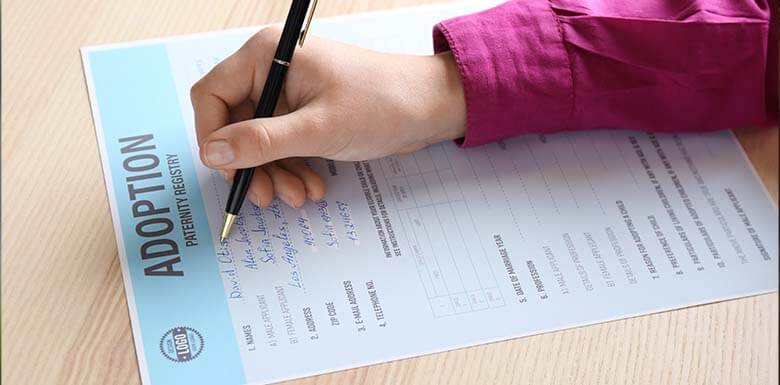
Written by Jonathan Breeden
Prospective adoptive parents have an exciting journey ahead. Although your heart is ready, it’s time to gather all the facts you need to make the best possible choice for you and your future child.
Read on to learn about the adoption process, how to choose a reputable agency, and the responsibilities and costs of adopting a child.
You have several choices when it comes to locating and adopting a child. There are many things to consider, including your budget, financial resources, children already in the home, and desired age range of an adoptive child.
Do you want to adopt an infant, perhaps from the moment of birth? Would you consider adopting a toddler or school-age child? Or is age not even a factor in your desire to give a child a loving home? Keep in mind that many prospective parents seeking adoption prefer infants or kids as young as possible, and the costs of adopting a young child can be much higher than adopting an older child.
Some families are willing to adopt siblings so as not to separate them. In contrast, others do not have the room or economic capacity.
Children with physical or cognitive challenges are more likely to face challenges finding an adoptive family. For some parents, adopting a child with special needs is the perfect way to expand their family.
The North Carolina Department of Health and Human Services (NCDHHS) connects families with children ready for adoption. Adopting a child through foster care is probably the least expensive option.
At any given time, there are many children of all ages and abilities in the foster care system, including siblings and kids with special needs. The NCDHHS works with AdoptUSKids, an adoption exchange program.
If you are open to adopting a child of a different race or national origin, international adoption might be the choice for you. Some countries also allow you to adopt siblings.
Many countries partner with U.S. agencies to facilitate international adoption. Adopting a child from outside the U.S. can be more costly. There are also specific travel and legal requirements, depending on the country of origin.
If you are interested in pursuing international adoption, the U.S. Department of State is a valuable resource.
Private adoptions are conducted with the help of a full-service adoption agency, facilitator, attorney, or consultant. These are typically more expensive but are more accommodating for parents who prefer an infant.
Is a connection between you and the birth parents important? Some adoptive parents prefer not to contact the biological parents and elect for a closed adoption. A semi-open adoption shares non-identifying information via a third party, such as an adoption attorney. In an open adoption, both adoptive and biological parents communicate directly.
The cost of adoption can be higher than you might expect, so it is important to consider your budget when you decide to adopt. Adoption-related expenses include travel, accommodations, home study visits to determine your readiness as a parent, parenting classes (if required), medical care for mother and baby, and more.
Adopting a child from foster care is usually the least expensive option; private domestic adoption of a newborn or international adoptions cost much more.
Adoption is an emotional journey. A couple may decide to adopt after several attempts or fertility treatments. It can be challenging to be objective and logical about selecting an adoption agency.
However, you want to reduce the risk of losing money or the adoption falling through.
The Division of Social Services from the NCDHHS is responsible for licensing child placement agencies that operate in the state. You can download a list of these licensed private agencies here. If you want to adopt a child through foster care, download this list.
You begin the adoption application process by answering questions and providing documentation.
Most adoption applications ask about:
You can expect several visits to your home during the application process. It may take up to six months for a comprehensive home study.
It doesn’t matter if you own your home or rent. Adoption agencies will view your home and neighborhood, considering questions like:
An adoption agency will ask your permission to run a criminal background check, including your fingerprints. Certain crimes exempt an individual from adopting. Any history of child abuse, sexual abuse, assault, and other violent crimes will terminate the adoption process.
You will provide medical documents signed by a physician attesting to your physical and mental well-being. List any chronic illnesses, such as diabetes, that could affect your parenting ability. You might be asked to provide blood, urine, or hair for drug testing.
North Carolina considers adoptions a “special proceeding” that involves a clerk or assistant clerk of the superior court. For foster care adoptions, you will file a petition of adoption in the county where you live. If you work with an agency, you should file a petition in the county where the agency is located.
An adoption decree legally unites your child with your family. A judge signs the document at a brief hearing where parents, family members, and the adopted child attend. Many families have a Finalization Day celebration to officially welcome their newest family member.
As you can see, there are many steps in the adoption process. With so much at stake, it is in your best interest to work with an experienced adoption lawyer to guide you.
An adoption lawyer understands the many requirements and deadlines in private and foster care adoptions. They help you avoid expensive errors or mistakes that could prevent you from finalizing the adoption.
Working with an attorney gives you peace of mind about many complex issues involved in an adoption, such as:
The Breeden Law Office has helped many North Carolina families adopt children. We look forward to assisting you as you begin or expand your family.
Call the Breeden Law Office for a consultation with an experienced adoption attorney. Call (919) 661-4970 or use our online form.